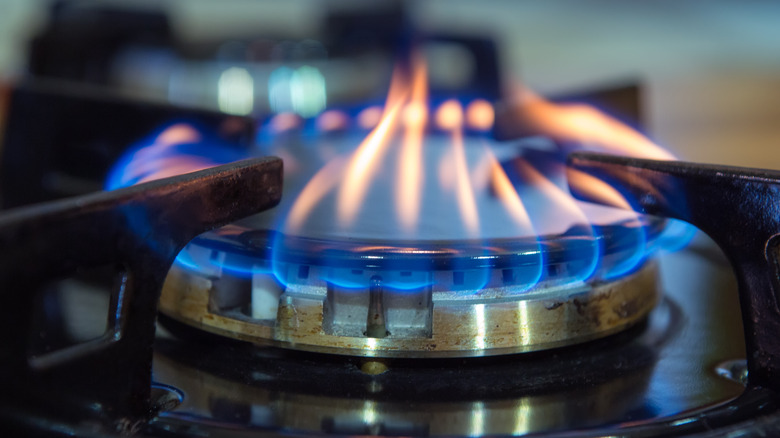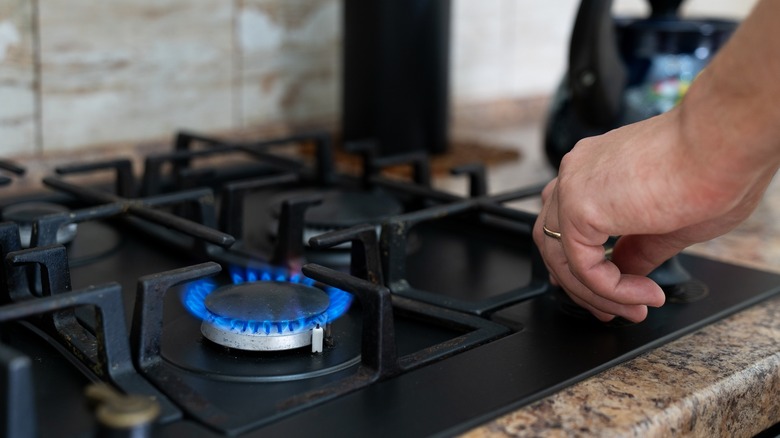Gas Stoves Could Become A Thing Of The Past. Here's What We Know
In one kitchen, just a click and poof — a blue light glows to heat the burner. Another kitchen may have a flat surface that radiates a red light. But, the blue flame from the gas stove might become a distant memory if some government agencies have their way.
According to HGTV, choosing gas over electric is a balance between availability, personal preference, and cost. Although gas stoves can heat up more quickly and efficiently, it can take skill to man the flame. While the continual usage cost can be easier on the wallet, the initial installation cost can be prohibitive. On the other hand, electric ranges can be less costly, easy to clean, and can be better for low heat. But, for the home cook who fancies themselves an aspiring chef, the electric range may not offer that versatility.
Unfortunately, the personal choice of gas versus electric may no longer be part of the home design conversation. According to a Bloomberg article, the US Consumer Product Safety Commission is researching the "hidden hazard" that a gas stove presents. When in use, the kitchen appliance could emit pollutants that may induce health problems, including childhood asthma. Under its regulatory powers, the US agency can ban products that "can't be made safe." Although the gas line might not be shut down immediately, the kitchen stove might have limited options.
Will gas stoves really go up in smoke?
As reported by CNN Business, 35% of U.S. households use a gas stove. Considered a cost-effective, efficient cooking method, the fossil fuel-driven energy source is being looked at in a different light. With both sides of the debate stacking their arguments, some cities, like New York City, have passed laws prohibiting new gas line hook-ups. On the other hand, other states have enacted preemption laws that would prohibit a natural gas ban.
According to the American Gas Association, proponents of natural gas believe that the legislative ban on natural gas could lead to a rise in housing costs. When compared to rising electric costs, gas tends to be less expensive and therefore a positive for lower-income demographics. On the other hand, The New York Times asserts that natural gas bans shift the conversation to renewable energy sources. Companies are looking to discover new and innovative ways to cook up cost-effective and efficient electric options.
At the heart of the natural gas prohibition debate is whether or not indoor pollutant significantly causes health issues. The one component that is not addressed in any of the legislation is ventilation. The stove hood is not decorative; it serves to improve air quality. If the goal is to improve indoor pollution caused by stoves, the cause might not be just one heat source. For now, some people can choose their stove preference, but that option might be off the table in the future.

